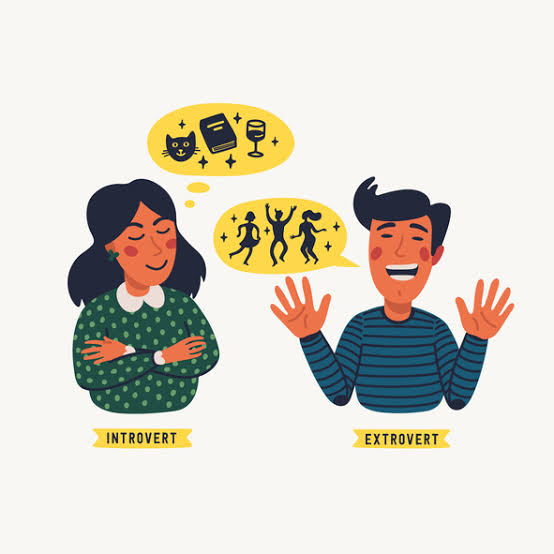Extrovert vs Introvert: Who Really Thrives in the African Workspace?

In many African workspaces, visibility has somehow become synonymous with value. The loudest in the room, the ones who fill meetings with confident sentences, who know how to greet the right people at the right time, often seem to rise faster. Meanwhile, those who speak less, think more, and deliver quietly in the background are left negotiating their place in the entire equation.
The unspoken rule silently hums beneath every meeting: if you’re not loud and audacious, you might as well not exist. But should personality really determine success? And, are workplaces rewarding those who speak loudest rather than those who perform best?
The Echoes of Loudness
In the average office across Lagos, Nairobi, or Johannesburg, energy is a form of currency. The ideal employee for any organization is visible, quick to share opinions, active in group chats, and ever-ready to speak up. They know when to laugh at the boss’s jokes, how to carry the room, and how to take up space.
This extroverted ideal fits comfortably with many African cultural expectations of communal participation. To speak is to belong, but to stay silent is to withdraw. Hence, in a continent that often prizes warmth and sociability, silence can feel like an offence. That’s why in some offices, the quiet employee is read as cold, aloof, or even unserious.
A Nigerian software engineer once tweeted:
“The issue with being an introvert or quiet person and letting that affect you at work is that the world is not built to favor introverted and quiet people. The world is built to favor extroverts and loud people.”
Truth be told, he wasn't exaggerating. In a culture that prizes visibility and connection, success can hinge not just on competence but on satisfaction with performance. Those who thrive are often not the best workers, but the best actors.

The Quiet Ones
Behind every chaotic meeting room is someone who did the actual work. The person who stayed up to fix the errors, who quietly drafted the client proposal that won the contract, or who kept the project afloat while others debated who should present it. They are not invisible, they’re just not built to broadcast their existence.
Introverts in workplaces often find themselves caught in a unique dilemma. They are often praised for their diligence yet punished for their silence. The same culture that extols humility and respect suddenly equates quietness with weakness once you step into the corporate boardroom.
“The problem we found is that we have stereotypical expectations of what it means to be passionate,” says Jachimowic.
The paradox here is that many societies publicly celebrate collectivism, but the modern workspace quietly rewards individual display. The loudness of contribution often overshadows the depth of thought.
Interestingly enough, it’s not that introverts lack confidence. Many are confident, articulate thinkers who simply recharge differently. But when every opportunity is filtered through visibility, by who spoke first, who volunteered fastest or who was noticed, quiet excellence becomes nothing more than an afterthought.
The Performance Paradox
This is where the politics of personality hits the hardest. In theory, the workplace should reward performance. In reality, many African offices reward performance of performance. It’s an illusion of performance, the art of appearing busy, vocal, or indispensable. You see it in meetings, where the same people speak endlessly while others are cut off mid-sentence. It's in the promotions too, where the loudest personalities get tapped for leadership, not because they’ve delivered more, but because they look the part.
Sometimes it’s unintentional, as managers equate engagement with energy. Other times, it’s structural. African workspaces often operate through informal networks, such as after-hours hangouts, WhatsApp groups and lunch tables, all places where access is quietly traded. If you’re not socially present, you may never even hear about opportunities until they’re gone.
And the result is a workplace where confidence outpaces competence, and extroversion masquerades as merit.
Cultural Codes and Corporate Behaviour
The preference for extroversion in African workplaces isn’t merely accidental, it mirrors broader cultural dynamics. Across many African societies, the social fabric is tightly woven through community, hierarchy and expressiveness. A reserved demeanour can clash with many of those expectations. Take Nigeria, for instance, where charisma and showmanship are often seen as markers of intelligence. “You can’t just be good, you have to show that you’re good.” This unwritten rule extends across all industries. Visibility has moral value.
But herein lies the irony: while African culture prizes community, corporate systems, which are imported from Western business models, prize individuality. So, African professionals are caught in a hybrid maze; to be sociable enough to fit in, yet assertive enough to stand out, and at the same time, humble enough not to offend hierarchy.
Introverts, who tend to speak less and think longer before acting, often fall outside this delicate balance. They risk being perceived as distant or arrogant when in reality they’re simply processing. So, in offices where respect and energy coexist, extroverts naturally dominate because they match the rhythm of the room.
Gender, Class, and Personality
Layering gender into this equation provides another perspective. An extroverted man is often seen as assertive. An extroverted woman, on the other hand, may be seen as being too much. Meanwhile, even though a quiet woman might be praised for being well-mannered, she could still be bypassed for leadership roles on the grounds that she isn't visible enough.
Class adds another twist. Many African professionals come from backgrounds where respect for authority means not speaking unless invited. For certain individuals, especially those raised in conservative homes, the expectation to constantly assert oneself at work can feel unnatural or even disrespectful. But in corporate Africa, the louder you are, the more leadership potential you seem to have.
There's a subtle pressure to reshape your temperament just to be taken seriously. And the saddest part is how many brilliant minds, especially women, burn out trying to become louder versions of themselves.
Shifting Grounds
Nowadays, the tide seems to be turning. When the pandemic pushed many African companies online, introverts found new ground, and their performance could finally speak through deliverables. The shift revealed that productivity doesn’t depend on constant interaction, it depends on clarity, structure, and balance.

Even organisations began to notice. Some are now experimenting with alternative engagement formats such as written reflections, asynchronous brainstorming and smaller discussion pods. It’s slow progress, but symbolic. The African workplace is learning, however gradually, that the quiet ones were never disengaged, they were just never heard.
And among younger professionals, especially Gen Z Africans, there’s a subtle rebellion against the big personality myth. They want work cultures that don’t punish silence or glorify burnout. They’re calling for workplaces where communication is two-way, not a competition.
Redefining What It Means to Thrive
So, who really thrives in the African workspace? The question is worth looking at from a different perspective. Thriving shouldn’t mean speaking the loudest or attending every staff hangout. It should mean doing work that matters, in a culture that allows multiple expressions of value.
A thriving African office is one where the extrovert’s spark and the introvert’s depth coexist. It's a place where meetings make space for silence, and leaders understand that not everyone who’s quiet is shy, and not everyone who’s loud is confident. There, personality stops being a performance metric and people are valued not just for their energy but for their impact.
Because if African workplaces continue to prize loudness over logic, they’ll keep mistaking confidence for competence, and losing the very people who could transform them.
Recommended Articles
There are no posts under this category.You may also like...
Bundesliga's New Nigerian Star Shines: Ogundu's Explosive Augsburg Debut!

Nigerian players experienced a weekend of mixed results in the German Bundesliga's 23rd match day. Uchenna Ogundu enjoye...
Capello Unleashes Juventus' Secret Weapon Against Osimhen in UCL Showdown!

Juventus faces an uphill battle against Galatasaray in the UEFA Champions League Round of 16 second leg, needing to over...
Berlinale Shocker: 'Yellow Letters' Takes Golden Bear, 'AnyMart' Director Debuts!

The Berlin Film Festival honored
Shocking Trend: Sudan's 'Lion Cubs' – Child Soldiers Going Viral on TikTok

A joint investigation reveals that child soldiers, dubbed 'lion cubs,' have become viral sensations on TikTok and other ...
Gregory Maqoma's 'Genesis': A Powerful Artistic Call for Healing in South Africa

Gregory Maqoma's new dance-opera, "Genesis: The Beginning and End of Time," has premiered in Cape Town, offering a capti...
Massive Rivian 2026.03 Update Boosts R1 Performance and Utility!

Rivian's latest software update, 2026.03, brings substantial enhancements to its R1S SUV and R1T pickup, broadening perf...
Bitcoin's Dire 29% Drop: VanEck Signals Seller Exhaustion Amid Market Carnage!

Bitcoin has suffered a sharp 29% price drop, but a VanEck report suggests seller exhaustion and a potential market botto...
Crypto Titans Shake-Up: Ripple & Deutsche Bank Partner, XRP Dips, CZ's UAE Bitcoin Mining Role Revealed!

Deutsche Bank is set to adopt Ripple's technology for faster, cheaper cross-border payments, marking a significant insti...
